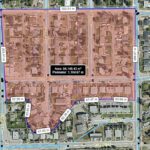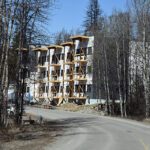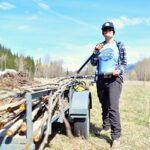Home »

Province to fight softwood lumber duties
The United States Department of Commerce has announced its final determination of duties of 20.83% to be applied to the majority of Canadian softwood lumber shipments entering the U.S.
The final countervailing duty rate is 14.25% (a decrease from the preliminary rate 19.88%) and the final anti-dumping duty rate is 6.58% (a decrease from the preliminary rate 6.87%).
A countervailing duty is a duty assessed by the U.S. Department of Commerce on Canadian exports of softwood lumber to the U.S.
The U.S. argues that in their view the duty is required to offset unfair subsidies that Canadian and provincial governments allegedly provide to lumber companies.
 About half of Canada’s softwood lumber exports to the United States originate from British Columbia, and the United States is B.C.’s largest market for softwood lumber products. Over the past year, high lumber prices have helped to mitigate the impact of the softwood lumber duties on B.C. companies.
About half of Canada’s softwood lumber exports to the United States originate from British Columbia, and the United States is B.C.’s largest market for softwood lumber products. Over the past year, high lumber prices have helped to mitigate the impact of the softwood lumber duties on B.C. companies.
British Columbia disagrees with this view. In the last two lumber disputes, Canada won appeals of each countervailing duty order that the U.S. Department of Commerce imposed and each injury determination by the U.S. International Trade Commission. B.C. is confident that Canada will win again on appeal of this unfair ruling.
“We will continue to fight for the 60,000 British Columbians who depend on forestry,” said Premier John Horgan. “The forest sector is an integral part of B.C.’s sustainable economy, and we will make sure workers, families and communities have the support they need to mitigate the impact of these duties. The reduction in rates by the U.S. Department of Commerce further indicates the strength of our appeal case and strengthens our resolve to fight for B.C.”
“This trade action is being driven by the protectionist United States lumber lobby, whose sole purpose is to constrain imports of high-quality Canadian lumber and to drive up lumber prices for their own benefit,” said Susan Yurkovich, president of the BC Lumber Trade Council. “This trade action ultimately punishes American consumers who are now paying higher prices for Canadian lumber when they buy, build or renovate their homes.”
“The U.S. continues to attack its closest friend, neighbour and ally while domestically the U.S. lumber coalition continues to put the interest of its members ahead of what is good for the American economy and American consumers,” said Bruce Ralston, Minister of Jobs, Trade and Technology. “The U.S. lumber industry cannot produce enough lumber to meet U.S. demand. A reliable source of softwood lumber products from B.C. and Canada will benefit the U.S. housing industry and American home-buyers.”
British Columbia will be supporting the federal government in appealing the U.S. Department of Commerce’s findings. The appeals cannot be filed until after the U.S. International Trade Commission issues its determination in December.
“The dispute with the U.S. highlights the need to grow other markets for B.C. wood products. To that end, I’m leading a forestry sector trade mission with over 35 senior forestry executives to China and Japan later this month. This mission builds on previous work done to grow these important markets,” said Forests, Lands, Natural Resource Operations and Rural Development Minister Doug Donaldson. “As well, we’re also committed to expanding our innovative wood products sector and developing public sector procurement policies that prioritize the use of B.C. wood.”
In 2016, the B.C. forest sector supported 60,000 direct jobs and one in four manufacturing jobs.
A breakdown of the rates
The U.S. Department of Commerce investigated five companies and assessed final countervailing duties (CVD) and anti-dumping duties (ADD) as follows:
* Canfor: 13.24% (CVD) 8.89% (ADD)
* Irving: 3.34% (CVD)
* Resolute: 14.7% (CVD) 3.2% (ADD)
* Tolko: 14.85% (CVD) 7.22% (ADD)
* West Fraser: 18.19% (CVD) 5.57% (ADD)
* All Others: 14.25% (CVD) 6.58% (ADD)
The duty rate assessed on all other companies is 20.83%. This includes a final CVD rate of 14.25%, which is the weighted average of the duty rates assessed on the five companies, and a final AD rate of 6.58%, which is the weighted average of the four chosen companies (Canfor, Resolute, Tolko, and West Fraser).
On June 1, the federal government announced $867 million to assist workers and communities across Canada that may be affected by the softwood lumber tariffs. The announced funding was based on recommendations from the Federal-Provincial Task Force on Softwood Lumber made up of provincial ministers responsible for forestry and chaired by the federal Minister of Natural Resources.
Lead image: The Canfor Mill at Radium Hot Springs. e-KNOW file photo
e-KNOW







